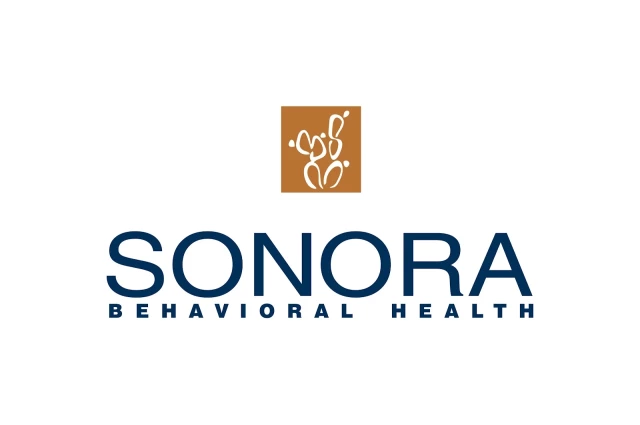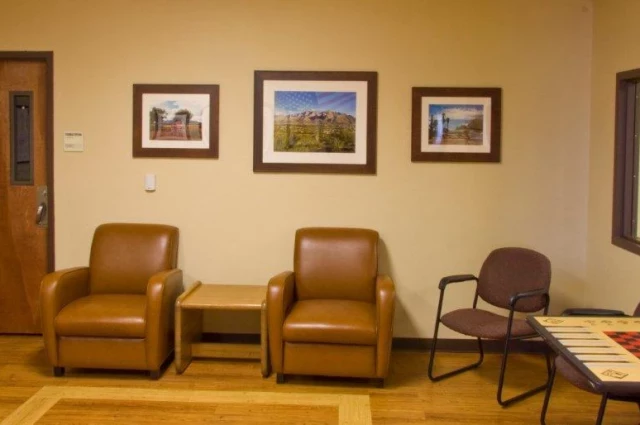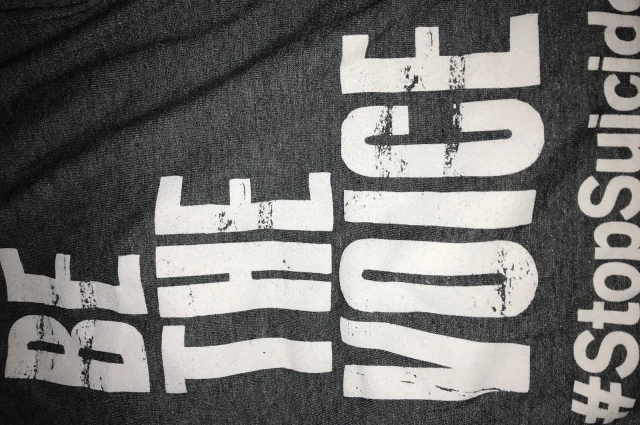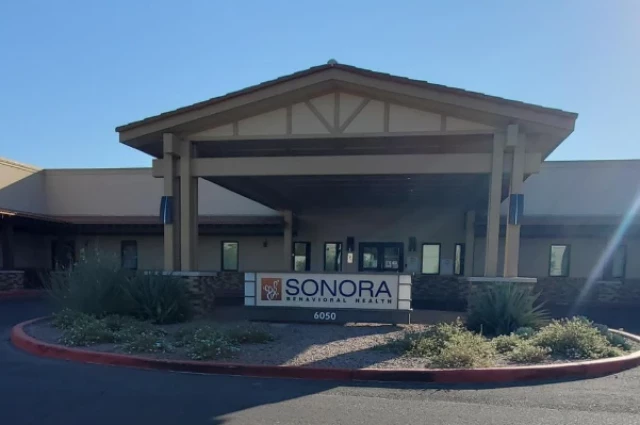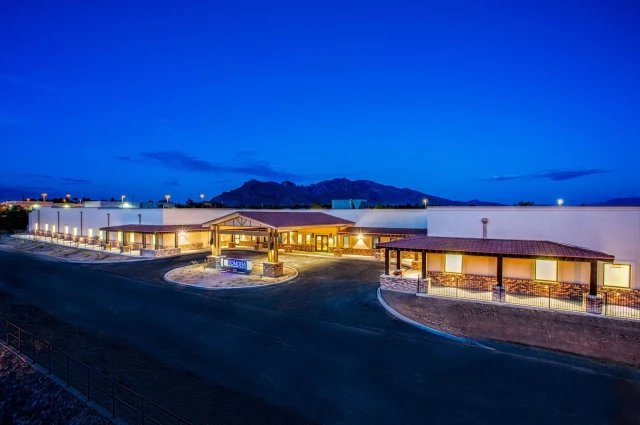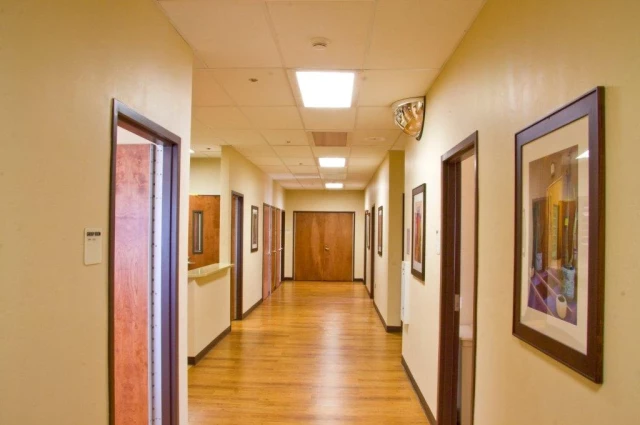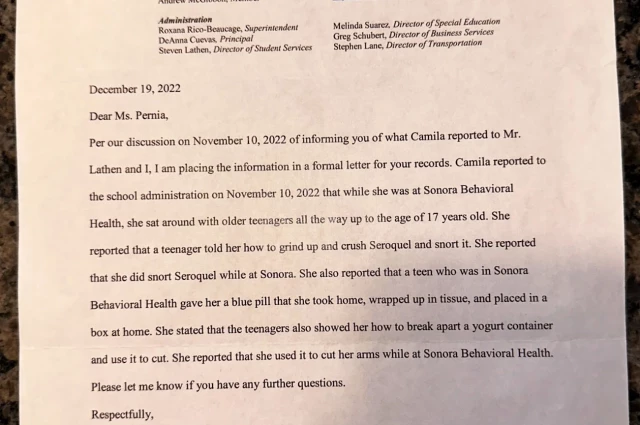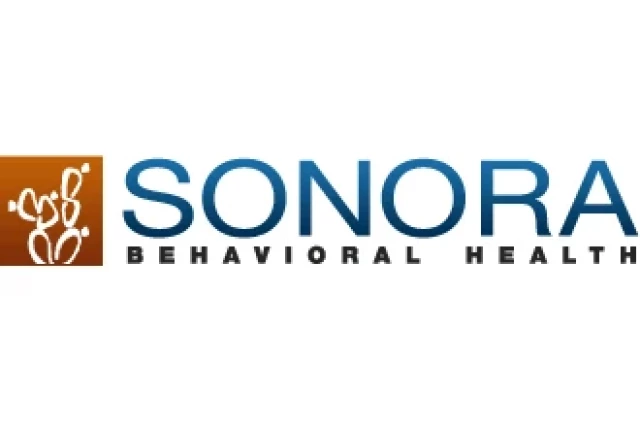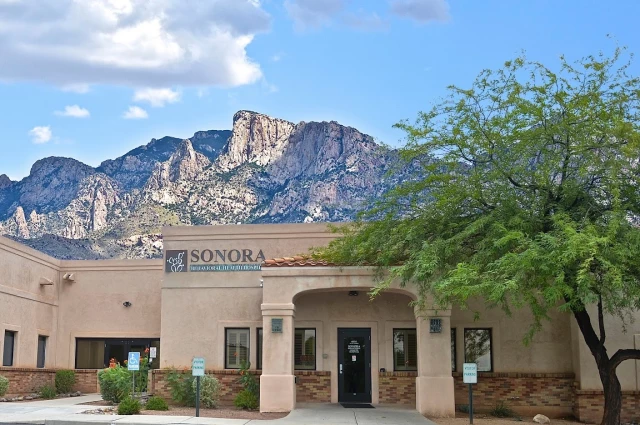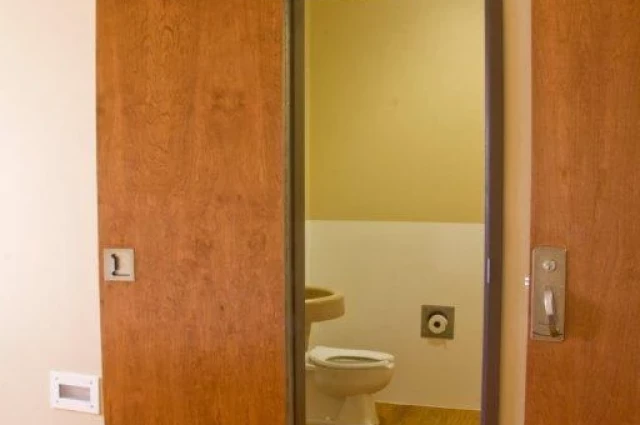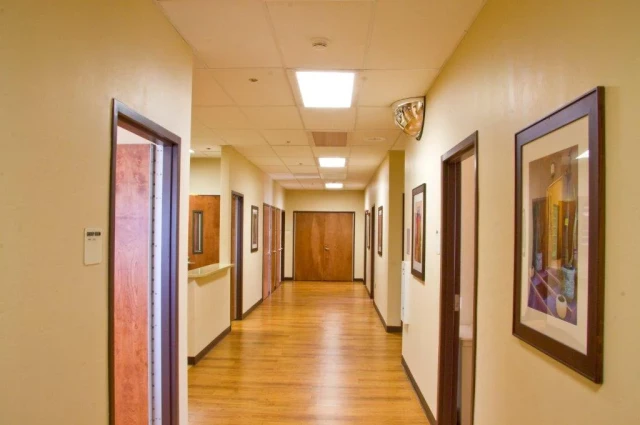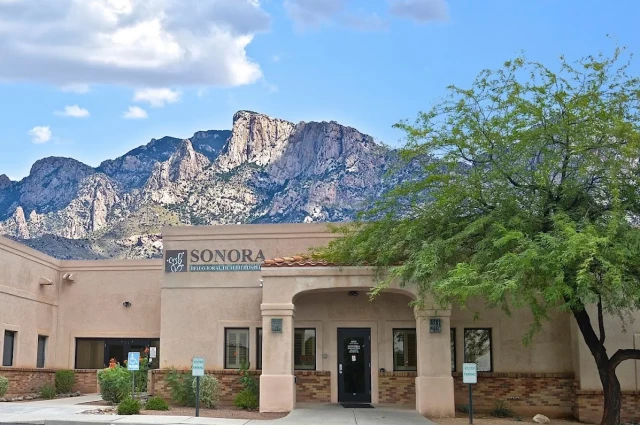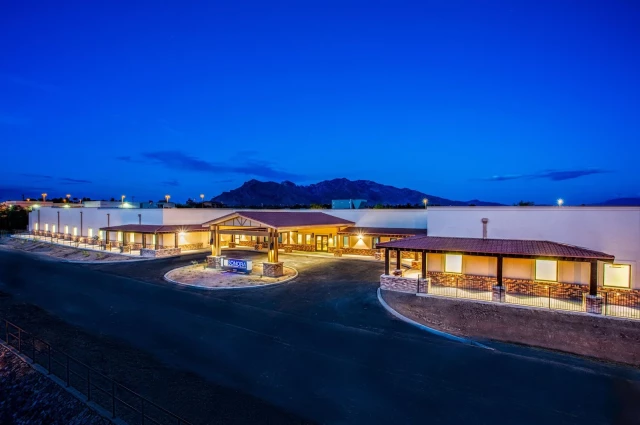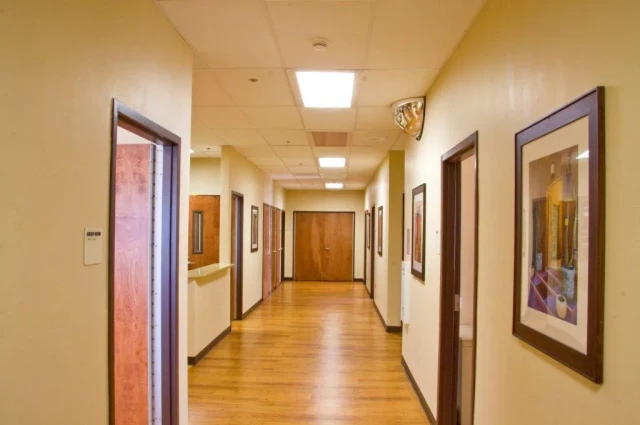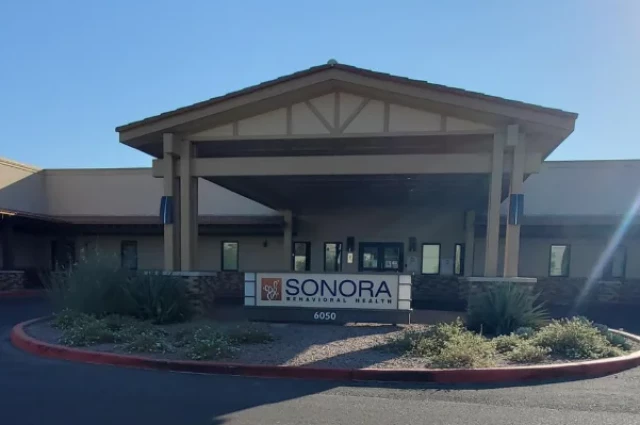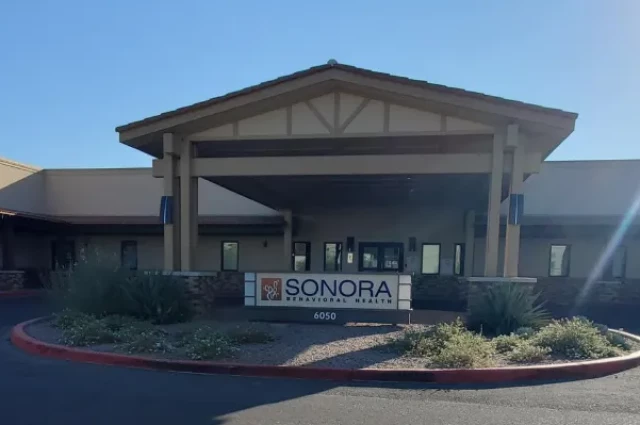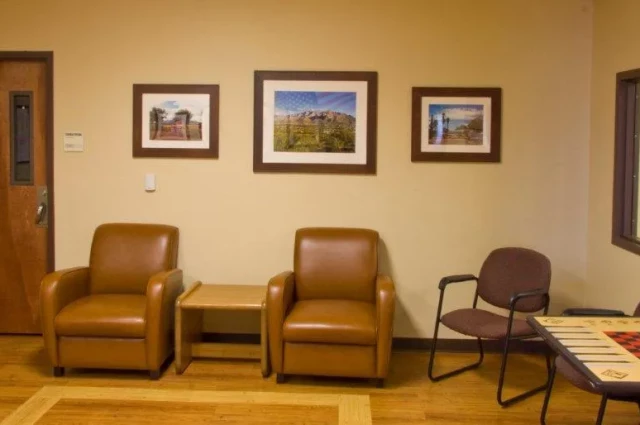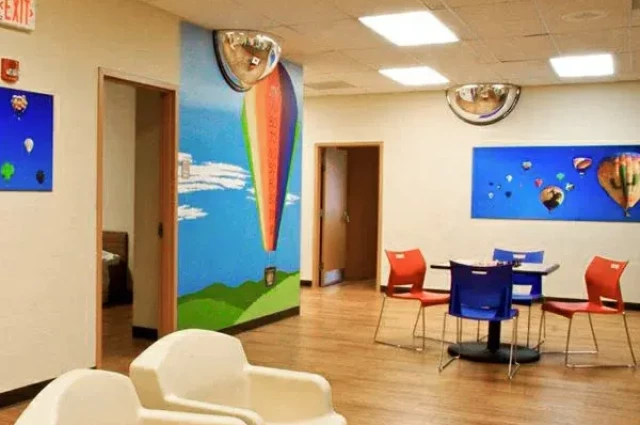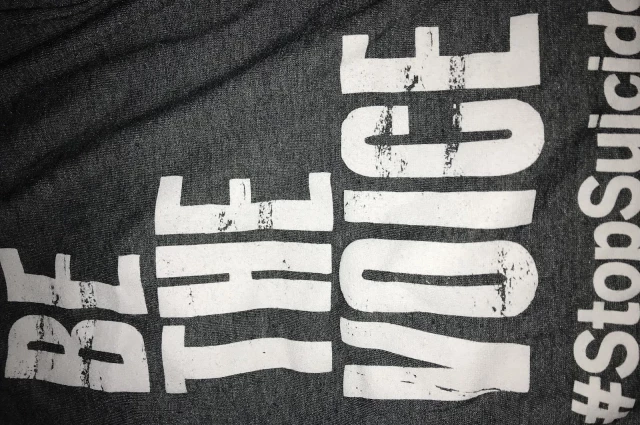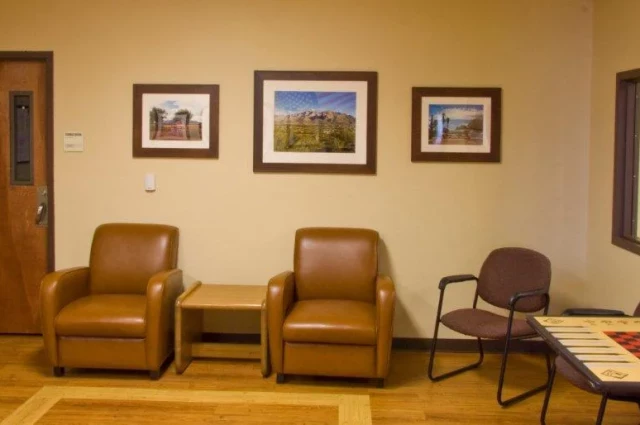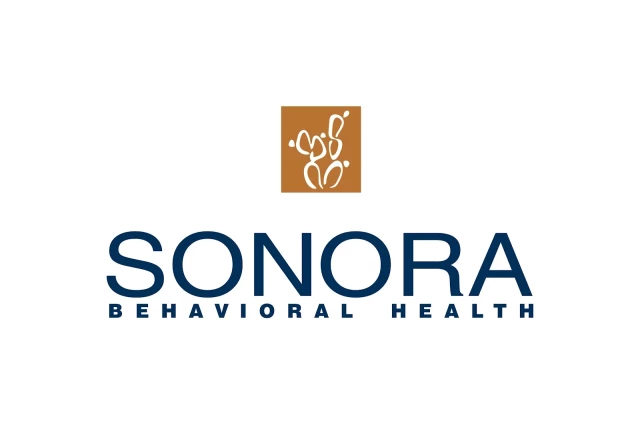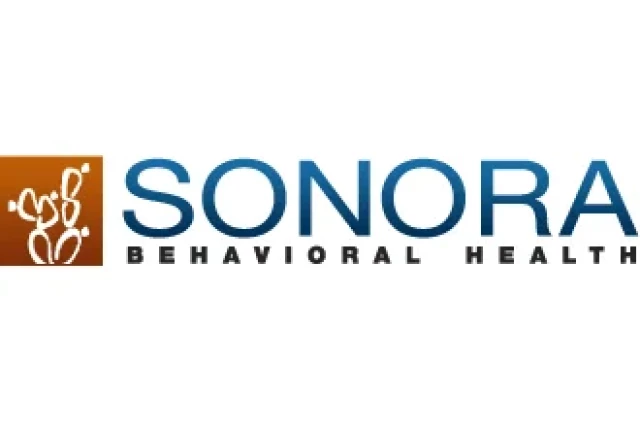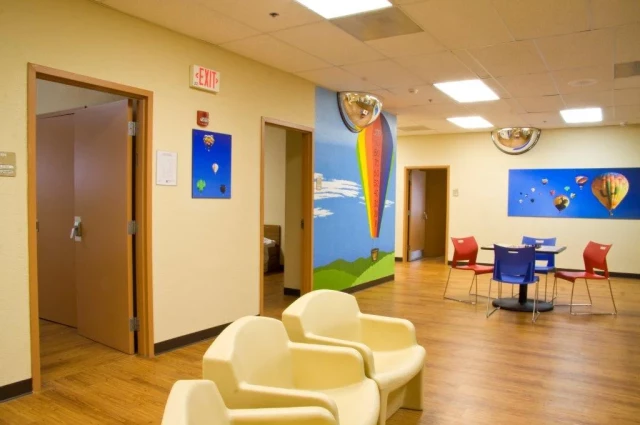Tucson, Arizona's Sonora Behavioral Health Hospital helps kids, teens, and adults in trouble with all kinds of mental health issues. The building provides many different services, such as inpatient hospitalization to help people in trouble, a Partial Hospitalization Program (PHP), and Intensive Outpatient Programs (IOP) for both mental and chemical dependency issues. All of their care is based on what each person needs, and there are no programs that focus on gender or faith-based issues.
Cognitive Behavioral Therapy (CBT), Dialectical Behavior Therapy (DBT), medication management, and both solo and group therapy are some of the treatment methods that Sonora Behavioral Health uses that have been shown to work. The center also has support groups for people who are dealing with addiction and educational classes on nutrition and self-care. Sonora mental Health has been given Platinum status by Optum as a top inpatient provider of mental health services. This means that they are known for providing excellent clinical care. The center also offers special care to first responders and people who have been through trauma. The hospital follows strict rules for patient safety and quality of care because it is accredited by The Joint Commission.
Sonora Behavioral Health Hospital Information
Treatment
Who We Treat
- Children
- Teens / Adolescents
- Adolescents
- Male and Female
Treatment Focus
- Schizophrenia
- Alcohol
- Anxiety
- Co-Occurring Disorders
- Depression
- Drug Addiction
- Eating Disorders
- Suicidality
Approaches
- Personalized Treatment
- Evidence-Based
- Family Therapy
- Group Therapy
- Trauma Informed
- Cognitive Behavioral Therapy (CBT)
- Dialectical Behavior Therapy (DBT)
- 1-on-1 Counseling
- Medication-Assisted Treatment (MAT)
- Online Therapy
Conditions We Treat
- Depression
- Anxiety
- Bipolar Disorder
- Post Traumatic Stress Disorder (PTSD)
- Psychosis/Schizophrenia
- Suicidal Thoughts
- Self-Harm
- ADHD/ADD
- Schizophrenia
- Eating Disorders
- Suicidality
- Bipolar
- Co-Occurring Disorders
Substances We Treat
- Alcohol
- Benzodiazepines
- Heroin
- Cocaine
- Methamphetamine
- Marijuana/Cannabis
Languages
- English
Aftercare
- Discharge Planning
- Intensive Outpatient Program
- Outpatient Treatment
- Continuing Care
Level of Care
- Outpatient
- Intensive Outpatient Program (IOP)
- Day Treatment
- Aftercare/Continuing Care
Experience
Personal Amenities
- Private or Shared Rooms
Smoking and Vaping Policy
- Smoking Allowed in Designated Areas
- Vaping Not Allowed
Accreditations
-
The Joint Commission
The Joint Commission, previously known as JCAHO, is a nonprofit organization that accredits rehabilitation organizations and programs. Established in 1951, its mission is to enhance the quality of patient care and showcase excellence in healthcare delivery.

-
SAMHSA certification for opioid treatment program (OTP)
SAMHSA's Opioid Treatment Programs (OTP) accreditation is a prestigious recognition that signifies a program's compliance with stringent standards and guidelines established by the Substance Abuse and Mental Health Services Administration (SAMHSA). This accreditation demonstrates an OTP's commitment to providing high-quality, evidence-based care for individuals struggling with opioid use disorder (OUD). It serves as a trusted symbol of accountability and excellence, assuring patients, families, and communities that the OTP offers safe, effective, and comprehensive treatment options for OUD.
-
NAATP
The National Association of Addiction Treatment Providers (NAATP) accreditation for addiction and behavioral health is a recognized and respected certification that signifies a treatment center's commitment to delivering high-quality services in the field of addiction and behavioral health. It serves as an assurance of compliance with industry standards and best practices, ensuring that individuals seeking help receive effective and ethical care. Accreditation from NAATP demonstrates a facility's dedication to maintaining rigorous standards, fostering accountability, and prioritizing the well-being and recovery of its clients.

-
State department of health
Government agencies issue State Licenses, granting rehabilitation organizations permission to operate their businesses legally within specific geographic regions. The licenses needed for legal operation are typically determined by the type of rehabilitation program offered by a facility and its physical location.

Sonora Behavioral Health Hospital Accepts The Following Insurance Plans
Find the best treatment options. Call our free and confidential helpline today!
